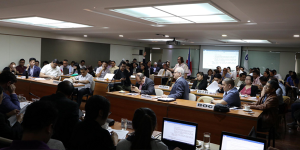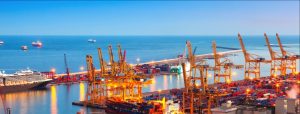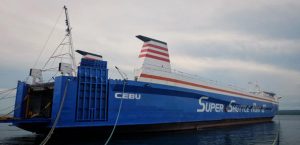
The Philippine Ports Authority (PPA), Bureau of Customs (BOC), Association of International Shipping Lines, port operators Asian Terminals Inc. (ATI) and International Container Terminal Services, Inc. (ICTSI) collaborated and issued a Manifesto of Support last 15 March 2019 for Government’s Effort to ease the problem of overstaying containers and make Philippine ports efficient.
Under the manifesto, PPA issued a directive to all importers, consignees, owners, and shippers of containers already cleared by the BOC to withdraw said containers within fifteen (15) days. Failure to comply with the directive will lead to the transfer of Customs-cleared containers to designated inland container depots of ATI and ICTSI. The cost of transfer will be shouldered by the cargo owners, shippers, consignees, logistics operators, or customs brokers.
For port operators, ATI and ICTSI will regularly provide government with information on the status of utilization of their ports, as well as information on containers staying inside their terminals for at least 30 days since arrival.
Foreign shipping lines are required to promptly evacuate empty containers, either by regular ship calls or sweeper vessels, from the Philippines within the period prescribed by the BOC.
BOC, in the meantime, will regularly dispose of seized or abandoned containers to maintain efficient utilization of Manila South Harbor and MICT. (MJAA)

 Department of Trade and Industry (DTI), Department of Transportation (DOTr), and Department of Finance (DOF) jointly presented the draft Joint Administrative Order (JAO) to concerned stakeholders. This aims to regulate the local charges imposed by international shipping lines and provide measures to address port congestion.
Department of Trade and Industry (DTI), Department of Transportation (DOTr), and Department of Finance (DOF) jointly presented the draft Joint Administrative Order (JAO) to concerned stakeholders. This aims to regulate the local charges imposed by international shipping lines and provide measures to address port congestion.

 House Bill (HB) No. 8005 seeks to separate the regulatory and commercial functions of the Philippine Ports Authority (PPA) and create a new port agency called Philippine Ports Corporation (PHILPORTS) will focus on developing, managing, and operating public ports.
House Bill (HB) No. 8005 seeks to separate the regulatory and commercial functions of the Philippine Ports Authority (PPA) and create a new port agency called Philippine Ports Corporation (PHILPORTS) will focus on developing, managing, and operating public ports. President Rodrigo Duterte and Indonesian President Joko Widodo launched the maiden voyage of M/V Super Shuttle, which will conduct a weekly Ro-Ro ferry service for the Davao-General Santos- Bitung, Indonesia (D-G-B) route.
President Rodrigo Duterte and Indonesian President Joko Widodo launched the maiden voyage of M/V Super Shuttle, which will conduct a weekly Ro-Ro ferry service for the Davao-General Santos- Bitung, Indonesia (D-G-B) route.